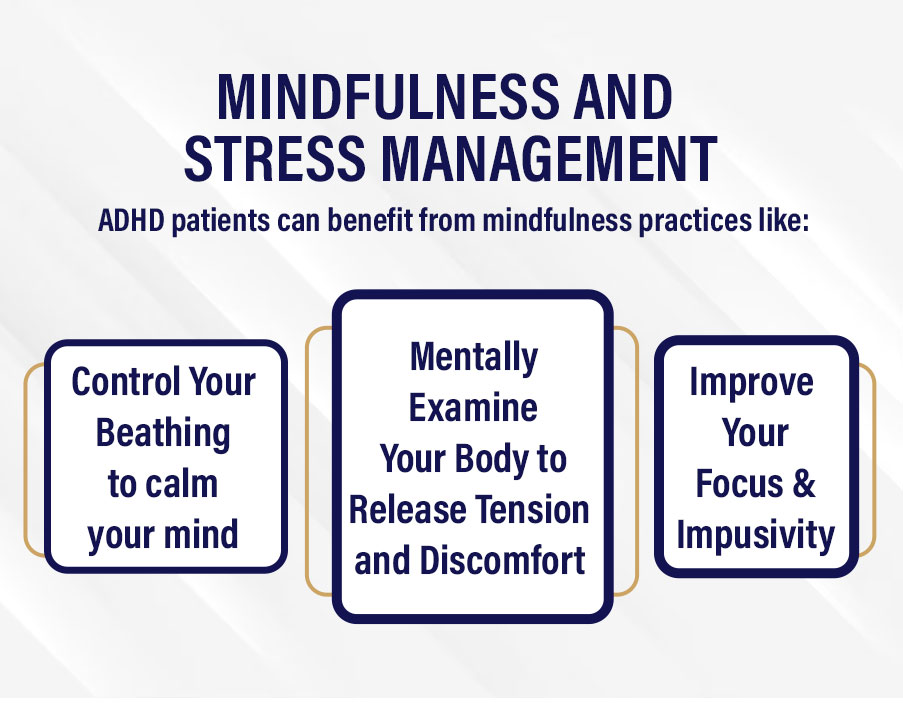Your mind wanders as you try to concentrate. You’re restless and want to move. You may speak impulsively. This is true for many people with ADHD, a neurodevelopmental disorder that makes life harder. While medicine is a typical treatment, non-medication techniques can help ADHD patients live satisfying lives. Managing Adhd without medication improves focus, organization, and overall wellness. These methods teach skills and behaviors that go beyond ADHD management.
Lifestyle adjustments and behavioral interventions can help manage symptoms without medication. These methods establish skills and habits to promote focus, organization, and well-being. ADHD sufferers can overcome their obstacles and prosper by using these tactics.
We’ll discuss managing Adhd without medication in this blog post. We’ll explore the pros and cons of non-medication options and how to adopt them. This blog article is for ADHD patients and those seeking new treatment options.
Understanding ADHD
ADHD symptoms vary but commonly include inattention, impulsivity, and hyperactivity. These symptoms might make organizing, managing time, and focusing hard. This can affect employment, school, and relationships.
It makes it hard to manage chores and responsibilities. ADHD sufferers often struggle with irritability, low self-esteem, and socializing.
Effective ADHD management requires understanding. By understanding the symptoms and how they affect daily living, ADHD patients can build ways to manage their symptoms and enhance their quality of life.
Benefits and Challenges of Non-Medication Approaches
Managing ADHD without medication has several benefits. One of the main benefits is avoiding ADHD drug side effects include lack of appetite, sleep difficulties, and mood swings. Non-medication alternatives also teach time management and organization skills that can be used beyond ADHD control.
However, without medication management options have drawbacks. ADHD patients may struggle to adjust their behavior or lifestyle. Non-medication methods may not work for everyone, especially those with severe ADHD symptoms.
What works for one person may not work for another with non-medication alternatives. Finding the best ADHD treatment may require trying several methods.
How to Manage ADHD without Medication
Lifestyle Changes and Behavioral Strategies
Lifestyle adjustments and behavioral techniques can greatly enhance ADHD control. Consider these tips:
- Supportive environment.
- Work and home distractions should be minimized.
- Use apps or plans to keep organized.
- Routines help you manage time.
- Reduce tasks to achievable steps.
- Keep appointments and deadlines in calendars or reminders.
- Put tasks in order of importance and deadline.
- Exercise boosts energy, focus, and mood.
- Including fruits, vegetables, and whole grains in your diet helps improve brain and general health.
- Avoiding sugar and processed meals may also aid ADHD.
Cognitive Behavioral Therapy (CBT)
- Cognitive Restructuring
- Recognizing and changing ADHD-related negative thinking patterns.
- Thinking more positively and realistically.
Behavioral Techniques
- Improving time management and organization.
- Reducing work to doable steps.
- Motivating behavior change with rewards and incentives.
- When paired with medication or lifestyle changes, CBT can be quite effective.
Managing Adult ADHD Without Medication
To deal with adult ADHD without medicine, people need to use a variety of methods and make changes to their daily lives that will help them focus, stay organized, and feel better overall. Adults with ADHD may have more problems because of the stress of work, relationships, and other responsibilities.
Before you can deal with your adult ADHD without drugs, you need to know what signs you have and how they affect your daily life. It’s important to come up with ways to deal with stress. For example, to stay organized, use planners, calendars, or digital apps; break chores down into smaller steps; and set up routines to better manage your time. It can also help to get help from other people, like joining a support group for adults with ADHD or working with a teacher or therapist who specializes in ADHD. Learn More
A healthy lifestyle that includes regular exercise, a well-balanced diet, and enough sleep can also help you be less impulsive and more focused. Using stress-reduction and mindfulness skills can help you deal with adult ADHD even better without taking medication.
Mindfulness and Stress Management

ADHD symptoms can be managed with mindfulness. Mindfulness, which involves nonjudgmental attention to the present, can help ADHD focus and reduce impulsivity. ADHD patients can benefit from mindfulness practices like:
- Slow, deep breaths and focusing on breathing can calm and focus the mind.
- This entails mentally examining your body from head to toe and releasing any tension or discomfort.
- Focus and impulsivity can be improved by paying attention to food flavor, texture, and fragrance.
Strategies For Stress Management Include
- Mindfulness meditation reduces stress and improves focus. A few minutes a day to sit quietly and focus on your breath helps soothe the mind.
- Regular exercise reduces stress and improves health. ADHD patients benefit from walking, jogging, and yoga.
- Eating well, sleeping sufficiently, and avoiding coffee and alcohol helps reduce stress.
- Deep breathing, progressive muscular relaxation, and visualization relieve stress.
- Effective time management reduces stress and overwhelm. Planners and digital apps help you keep organized and on task.
Learn More: The Importance of Proper Psychiatric Medication Management
FAQs
Managing Adhd without medication is possible. Behavior modification, lifestyle adjustments, and treatment can help.
Creating a supportive atmosphere, increasing time management and organization, practicing mindfulness, and stress management are non-medication ADHD treatments.
Lifestyle improvements, including regular exercise, a balanced diet, and enough sleep, can improve ADHD symptoms by reducing stress and promoting wellness.
ADHD symptoms can be managed with mindfulness. Mindfulness meditation reduces impulsiveness and improves focus.
Therapy or coaching can assist in managing ADHD without medication. A mental health expert can help manage ADHD symptoms with advice and personalized solutions.


